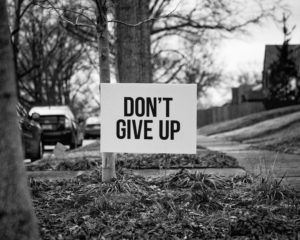After months and months of free time, for the foreseeable future, many of us will have a lot more of it on our hands. Those who have been struggling to find work or live in places who are now or will be experiencing a second wave of COVID-19 will have to again, find something productive to do with their time. Back in April, I wrote this piece on struggling with addictions during the pandemic. As time—and the virus—carries on, with the absence of a focal point (such as a job, project or school etc.), the battle with our addictions or bad habits carries on as well.

Preventing relapse is tough, especially during a pandemic. As time to sit and think about our lives, our problems, and the meaning of existence increases, resisting the urge to fall into old habits becomes even harder. Ruedy et al. write in their study on the affective benefits of unethical behavior that, “In the moment, the immediate reward is more compelling than adherence to their long-term goal. In the context of ethics, someone who is tempted to engage in an unethical behavior, guided by the “want” self, will be more likely to focus on the immediate benefits they might accrue rather than the potential costs that they may incur later.”

This 2015 article published by the Yale Journal of Biology and Medicine discusses relapse prevention. Below are the five rules outlined in the article to follow to avoid slipping back into old habits.
Make the change
You can’t expect yourself to stay away from bad habits if you don’t make any changes to your life. So this is the most important tip for preventing relapse. This may mean removing yourself from certain situations or distancing yourself from certain people. Or in terms of bettering your eating habits, it may mean changing the way you walk to work if you happen to walk by a certain bakery, etc.

Be honest with yourself (notice the warning signs)
With any addiction, bad habit or whatever you are trying to avoid, relapse is always a possibility. Fighting an addiction of any kind—whether it be not excessive amounts of junk food or an alcohol addiction—is a daily battle. There are certain days that will be harder than others, days when thoughts may just creep in a little more, or a certain situation/ emotion/ sensation will set you off. Be honest with yourself about how you feel in that moment—don’t ignore it!—and make the necessary changes in order to get through the moment.
Tell someone
Keeping your thoughts and feelings about relapse a secret does more harm than you may think. Harboring secrets about a bad habit or addiction is one of the things that makes it so thrilling. “Getting away with it” simply makes people feel good, emotionally and psychologically,” reports a study about “the Cheater’s High.” It’s part of the addiction. Breaking this cycle by telling a trusted friend or family member will add an extra element of accountability to deter you from falling into old habits.

Practice self-care
By practicing the right kind of self-care (check out this article for more info), being kind to yourself and finding other things you enjoy can help put you back on the right path. Give yourself something to feel excited about daily or weekly, like getting coffee with a friend or working on an art project.
Stick to the rules
Over the last five months I’ve found my rules have relaxed a lot. And while my goal is to not have such strict rules someday, I have to honor what feels comfortable and safe for me right now. Pushing boundaries and changing thought processes is part of recovery but not at the risk of relapse. For example, being able to have just one glass of wine may be your long-term goal, but it is not a good idea to indulge in a vulnerable time.
Also by Nea: Why Visualization Doesn’t Work For Most People—& Alternative Technique To Try
Get more like this—Sign up for our daily inspirational newsletter for exclusive content!
__
Photo: Lemercier, Fisher, Kerr, August; Unsplash.




